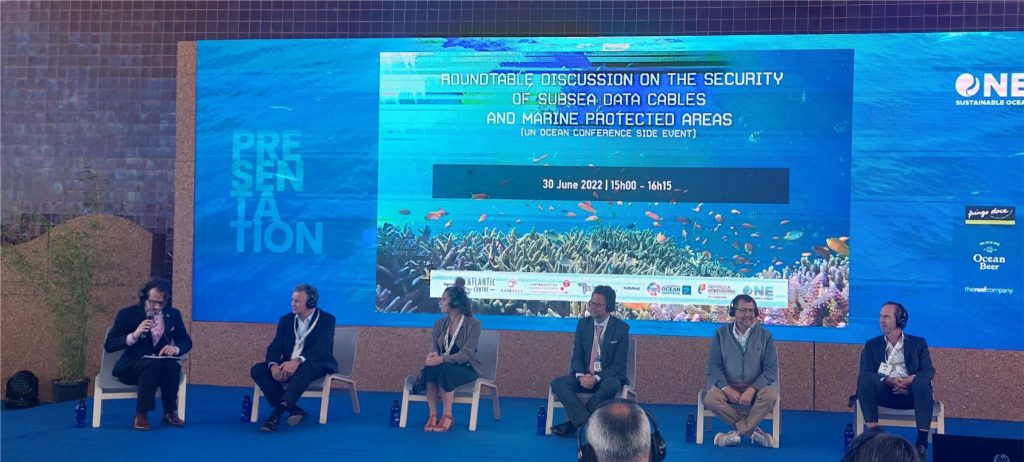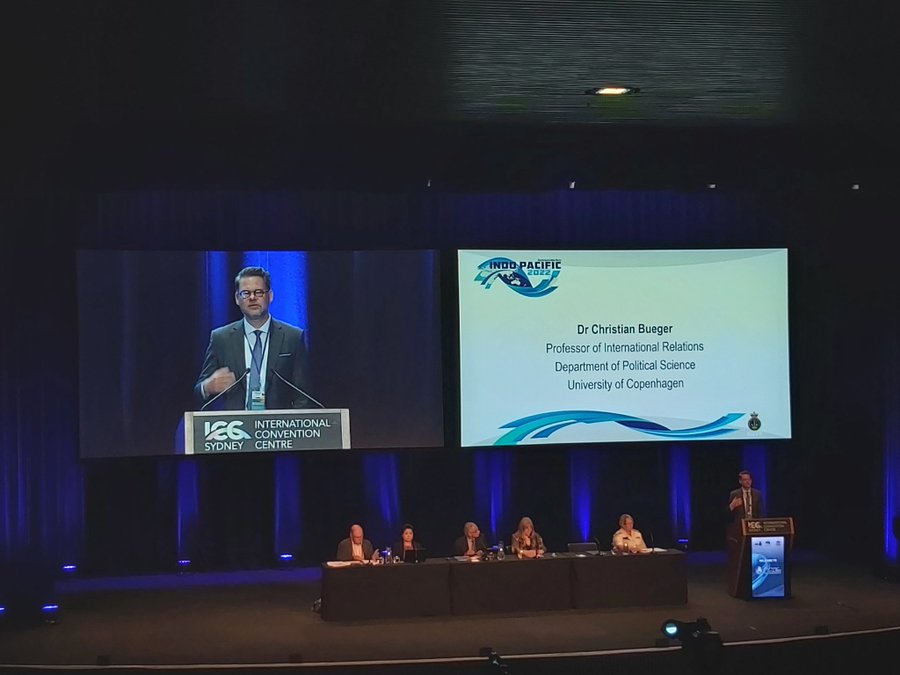This week I am attending the UN Ocean Conference. These type of conferences are increasingly important in ocean governance, and it will be an exciting opportunity to learn more about how such events unfold, and if and how they have an impact on global ocean governance.
As part of the conference we are also hosting together with the Atlantic Center of the Portuguese Ministry of Defense and the Institute for Security Studies (Pretoria) an expert workshop on subsea data cable protection. The workshop is part of our DACANE project and will reflect on the insights gained in our recent study on data cables for the European Parliament.

We are also co-hosting a public panel, which is part of the UN Ocean Conference Programme. In the public event we will explore the relation between marine infrastructure protection and marine conservation. The panel is opened by the Portuguese Secretary of State for Defence, Marco Capitão Ferreira, as well as Peter Thomson, UN Secretary-General’s Special Envoy for the Ocean. It is chaired by Martin Koehring, Head, World Ocean Initiative, Economist Impact and features Steve Dawe, Chairman European Subsea Cable Association, Kaitlin Meredith, UNODC Global Maritime Crime Programme, Philippe Dumont, CEO EllaLink, Leendert Bal, Head of Safety, Security and Surveillance Department, European Maritime Safety Agency and myself.
